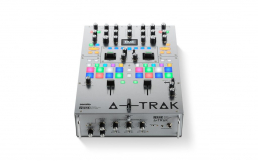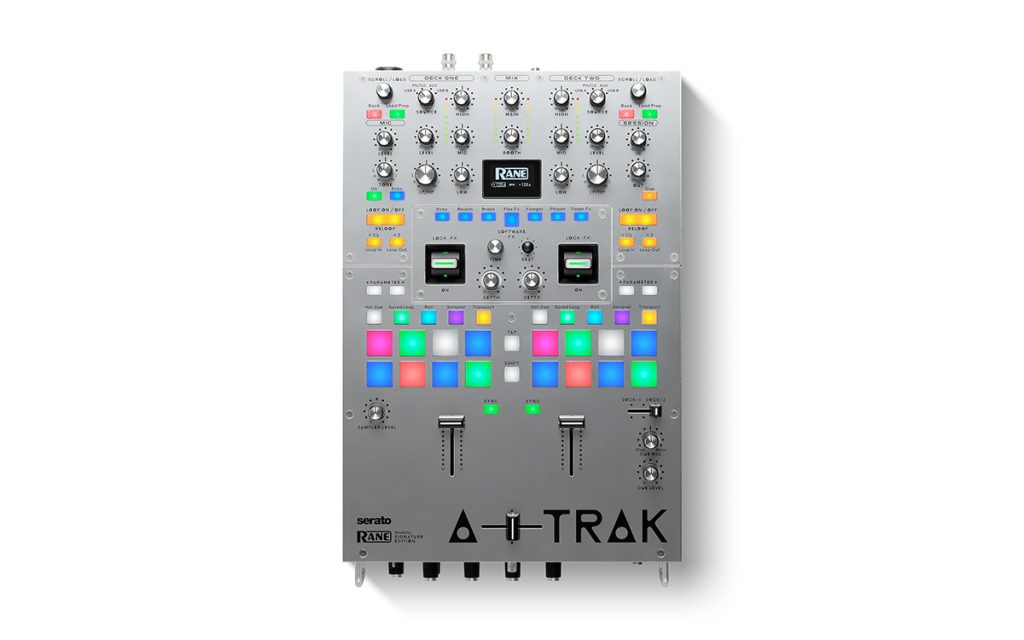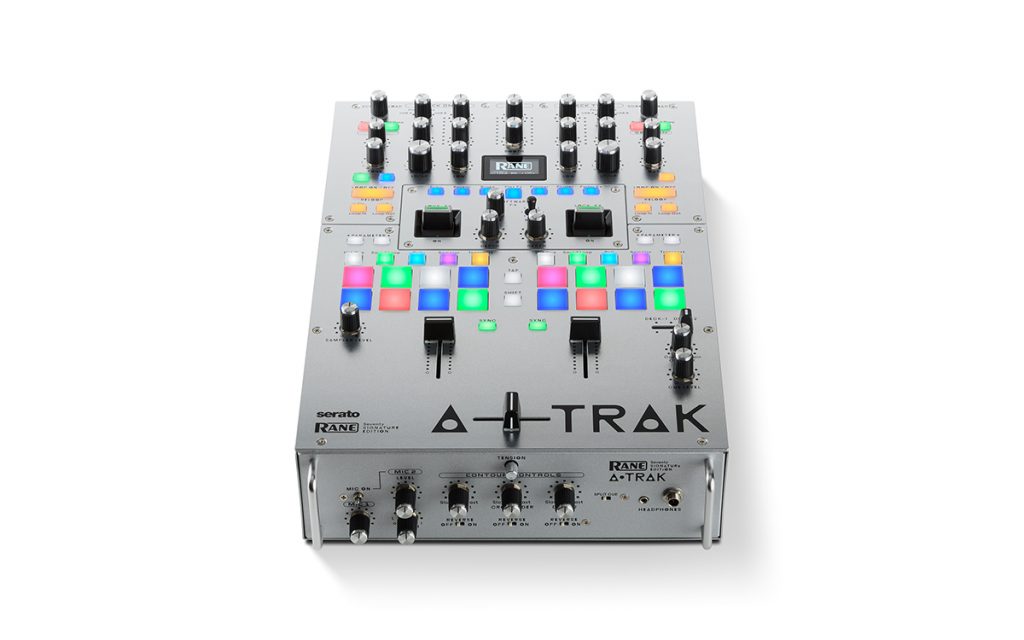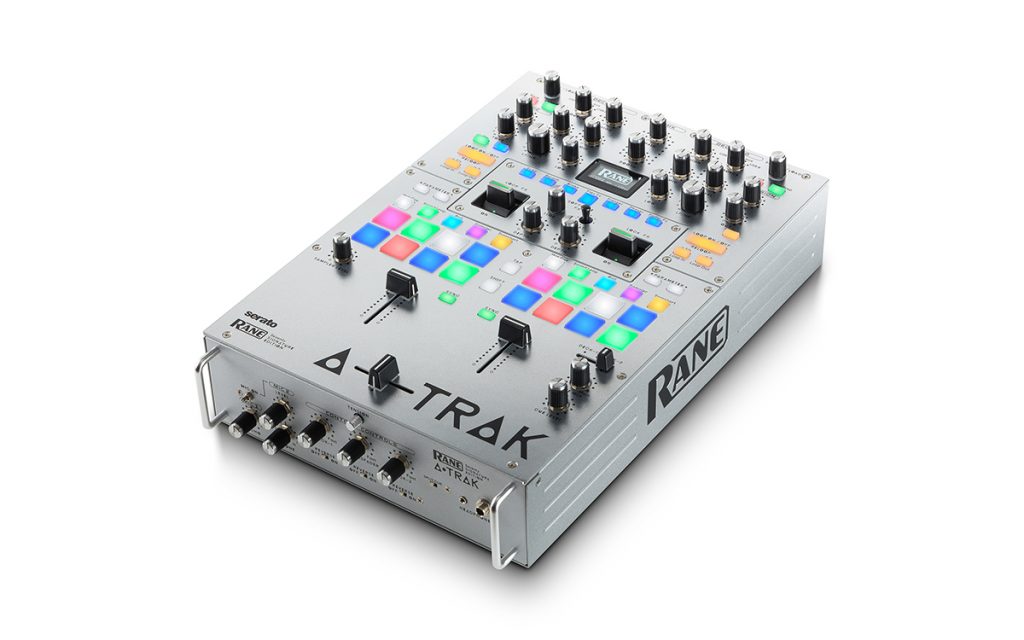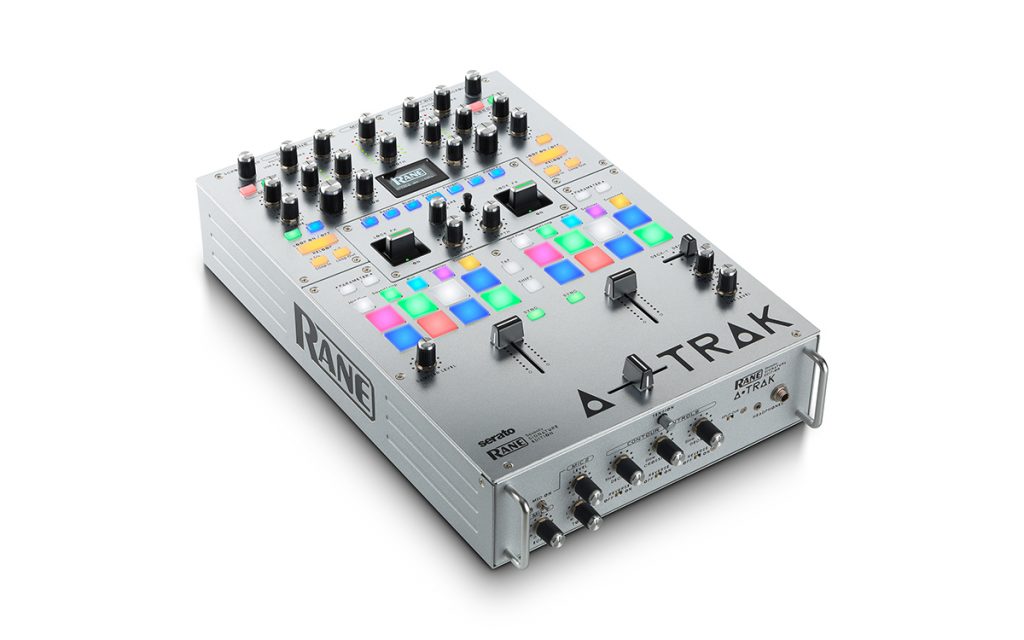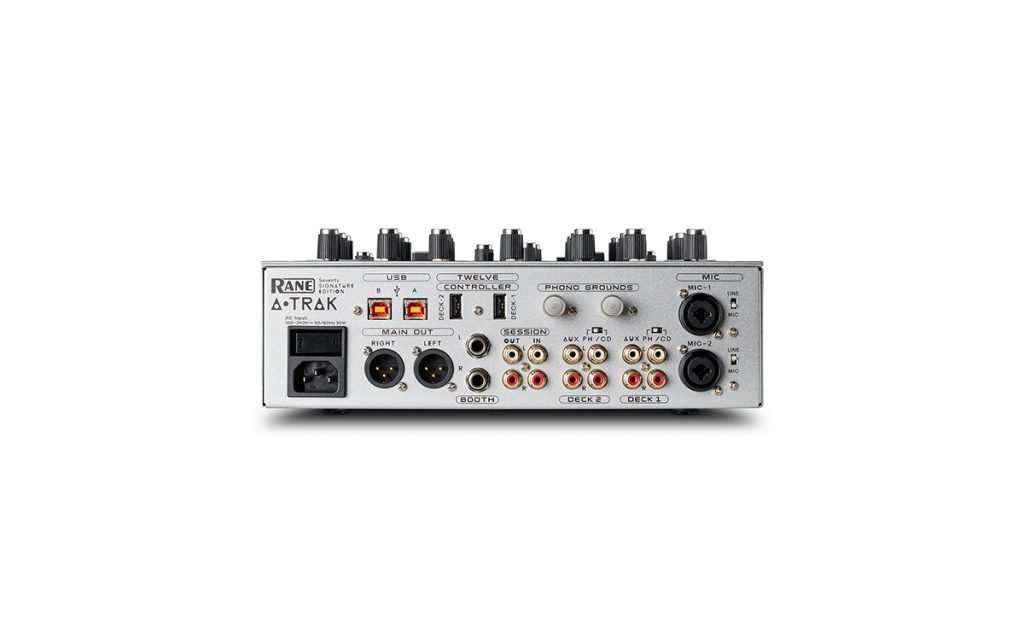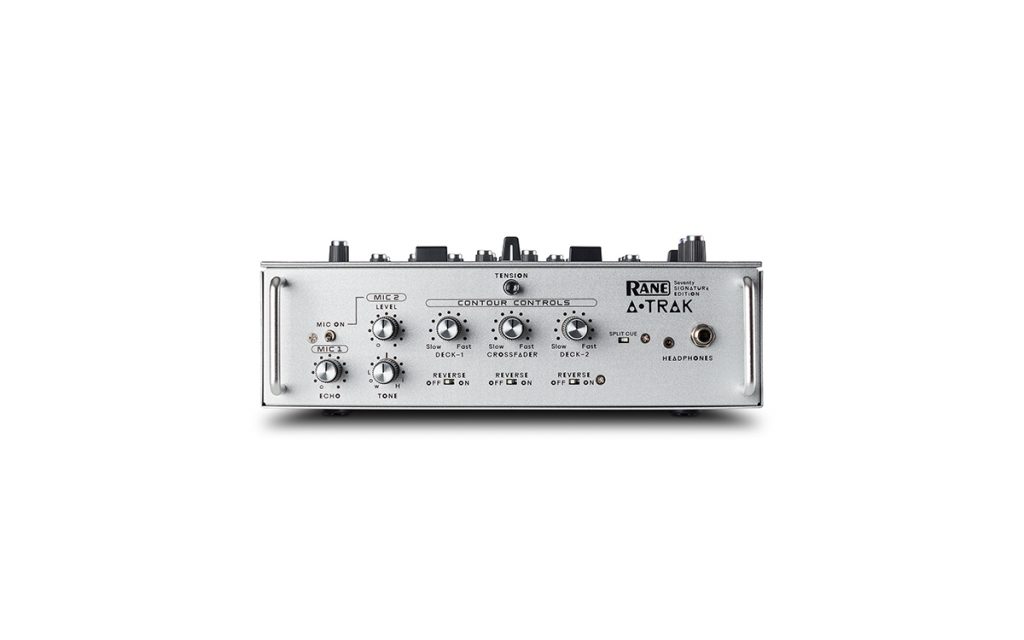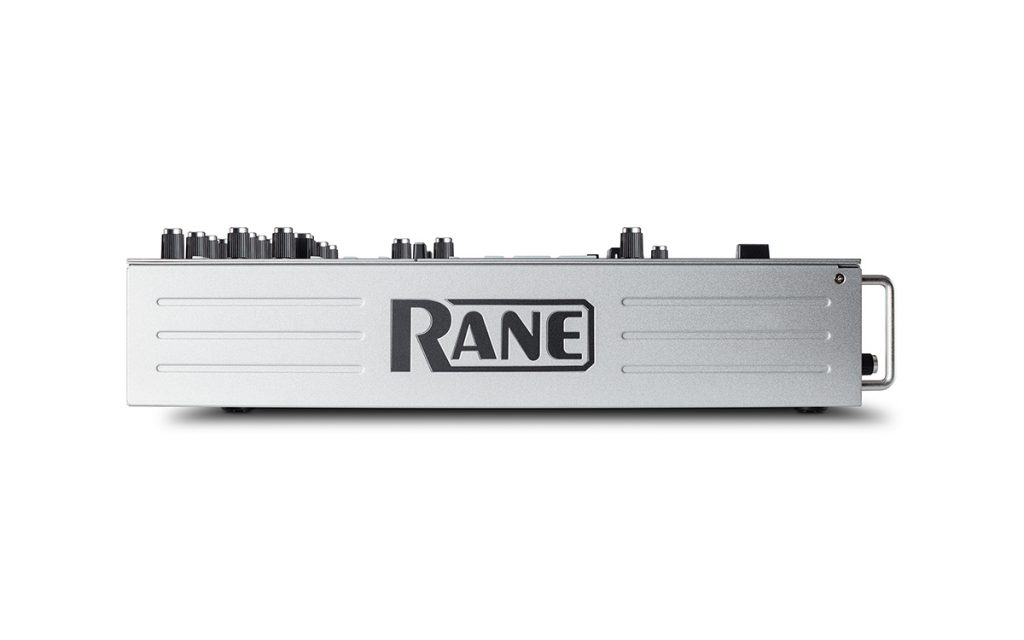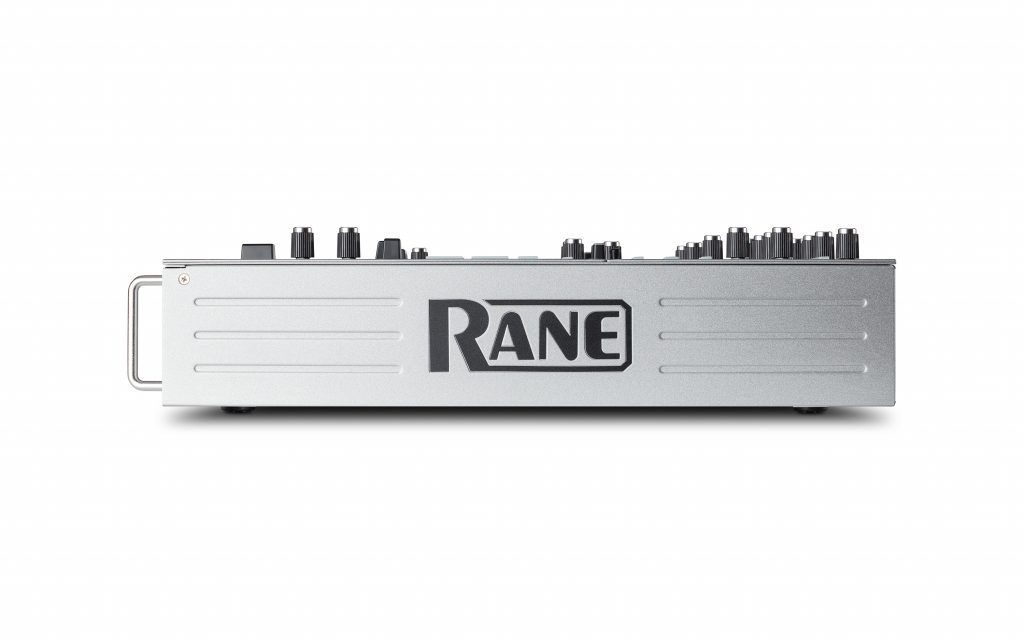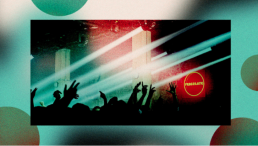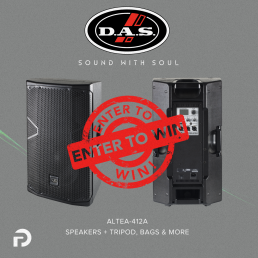A-TRAK AND RANE ANNOUNCE NEW BATTLE MIXER COLLAB
I’m a big believer that every classic piece of kit should have a signature feature, something that sets it apart from the rest.
A-Trak
SEVENTY A-TRAK SIGNATURE EDITION
The SEVENTY A-TRAK SIGNATURE EDITION is a meticulously designed remix of the popular RANE SEVENTY DJ mixer. Internationally renowned DJ, turntablist, and producer, A-Trak, played an integral part in the mixer’s creation, handpicking the features, signature sound, and look of what he considers to be the ultimate mixer for the future of turntablist performance.
SEVENTY A-TRAK SIGNATURE EDITION || MORE THAN JUST A PRETTY FACEPLATE
The exterior of the SEVENTY A-TRAK SIGNATURE EDITION features a stunning silver finish that gleams beneath the aluminum-capped rotary-styled knobs and encoders. Custom font-faces and elements adorn the mixer, but the real magic lies beneath the surface. The sound curve and frequency response of the mixer was handcrafted by A-Trak himself, increasing the depth of the low-end to ensure that the high-quality audio matches his signature sound. Simply put, the SEVENTY A-TRAK SIGNATURE EDITION sounds like nothing you’ve ever experienced before!
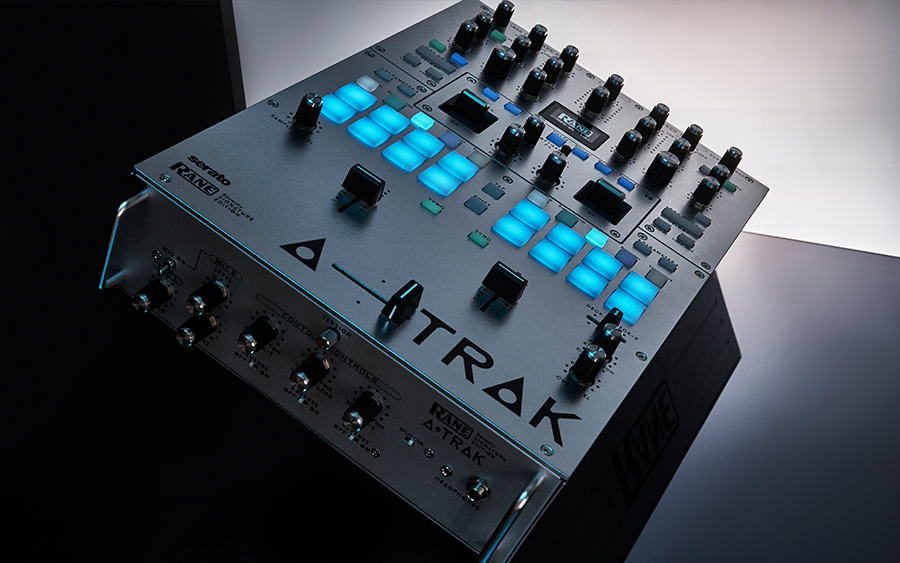
SEVENTY A-TRAK SIGNATURE EDITION || PERFORMANCE-ENHANCING FADER FX
“I’m a big believer that every classic piece of kit should have a signature feature,” says A-Trak, “something that sets it apart from the rest.” Enter Fader FX, a new mixer feature that transforms the channel volume faders into linear controllers for performance effects like Filter, Roll, Pitch, Ring-Modulator, and four types of Oscillators. DJs can dive deep into the settings of these Fader FX options to change root keys, octaves, and more, crafting a personalized set of tools to take with them to their next performance or battle.
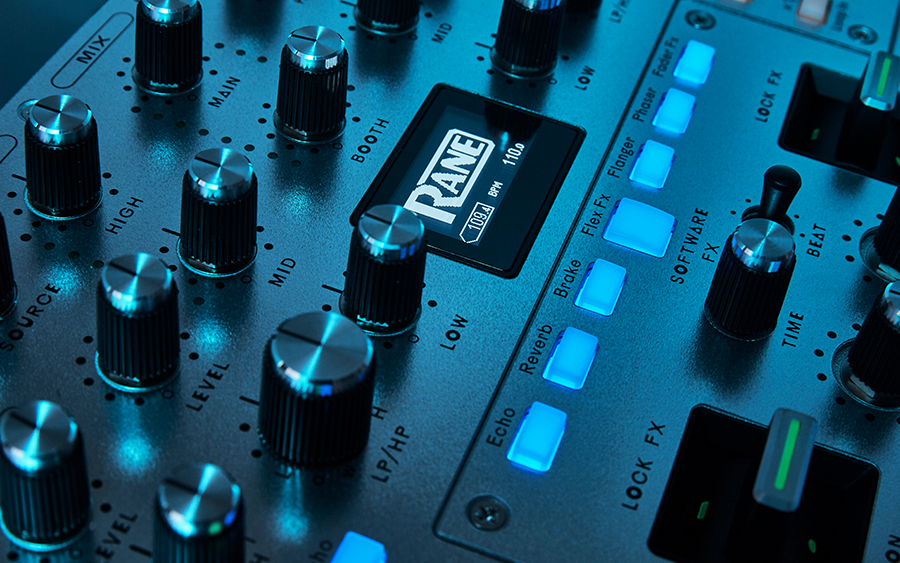
SEVENTY A-TRAK SIGNATURE EDITION || BUILT ON THE SEVENTY’S SOLID FOUNDATION
The SEVENTY A-TRAK SIGNATURE EDITION was built upon the solid foundation of the RANE SEVENTY, known for its intuitive layout and best-in-class performance. The same solid-steel construction that makes the SEVENTY a battle-standard mixer is found in the SEVENTY A-TRAK SIGNATURE EDITION along with the same premium MAG FOUR faders and MPC-style Performance Pads. All of the other features that make the original SEVENTY the mixer of choice for discerning DJs are in the SEVENTY A-TRAK SIGNATURE EDITION as well, including easy access to Serato’s Scratch Bank, external crossfader tension adjustment, and six post-fader internal Flex FX (including Fader FX) which can layered with Serato DJ Pro’s Software FX.
The SEVENTY A-TRAK SIGNATURE EDITION mixer sets a new standard of what a championship battle mixer should be and will undoubtedly bring a new level of creativity, artistry, and style to DJ performances and battles across the globe.
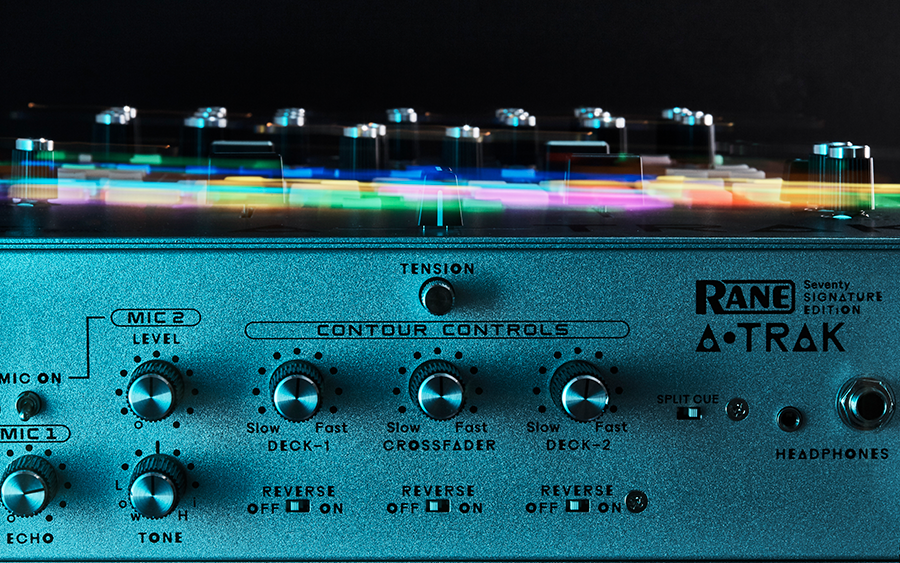
SEVENTY A-TRAK SIGNATURE EDITION || HIGHLIGHTS
· Exclusive A-Trak designed silver solid-steel exterior with premium rotary-style aluminum-capped knobs
· Up-fader controlled Fader FX with 4 tone generators for advanced performance creativity
· Signature A-Trak sound curve with custom low-end frequency response and industry leading signal-to-noise ratio of 114dB
· Special 10” Serato Sticker Lock vinyl is included along with custom-designed sticker set
· (6) post-fader internal Flex FX stackable with Serato DJ Pro software FX
· Dual diecast, rotatable aluminum FX paddles
· (3) MAG FOUR contactless faders with external control for crossfader tension-adjustment
· 16 performance pads with independent pad modes for each channel (includes Scratch Bank support)
EXPLORE THE SEVENTY A-TRAK SIGNATURE EDITION HERE
How are clubs and promoters approaching a safe return to the dancefloor?
Clubs across England opened dancefloors for the first time in 16 months during the early hours of Monday morning (19th July). But while people hit clubs, the sense of relief and celebration is mixed with trepidation for many, in part due to contradictory messaging from the UK Government and rising coronavirus cases across the country. At a crucial time for club culture, Martin Guttridge-Hewitt asks: how are clubs and promoters approaching reopening week?
“The clowns in Government have abdicated responsibility,” says promoter Rich Reason, a matter of days before the return of his storied Manchester party, Hit and Run. “We now have to muddle through, best we can, balancing our worries and our needs, our presents and our futures.”
“As we embark on these — quite possibly short lived — weeks of reacquainting ourselves with clubbing, dancing and the freedom this culture manifests, let’s still be conscious and responsible. Take tests regularly, be aware that people will have different levels of comfort when it comes to touching, and be kind to all those working,” he continues, highlighting the collective responsibility “freedom weekend” entails.
Plenty has changed since UK Prime Minister Boris Johnson announced plans to safely bring the country out of lockdown. Not least the date ‘freedom’ returned. Clubs in England were initially meant to reopen from 21st June, a timeline extended to 19th July, in part so more people could receive coronavirus vaccinations. That plan worked: over 7.5million jabs were administered between then and now. Elsewhere, though, numbers are less encouraging. At the time of writing, the UK has had a rolling average of 45,462 new COVID-19 cases per day for the past week, figures on an upward trajectory, edging closer to January’s second wave peak of almost 60,000 daily infections.
Nevertheless, venues across England opened dancefloors for the first time in 16 months during the early hours of Monday morning. The theory is, with 87% of English adults having had one dose of an approved vaccine, and 67% now ‘double-jabbed’, rising cases won’t put the same strain on health services as before. But while punters hit clubs, the sense of relief and celebration is mixed with trepidation for many.
Statements from Downing Street grew increasingly cautionary and blurred as 19th July approached. A 12th July Johnson-led press conference told the public they would be “expected to wear a face covering in crowded and enclosed spaces where you come into contact with those you don’t normally meet.” Meanwhile, when venues opened on 19th July, the Government was “urging nightclubs and other venues with large crowds to make use of the NHS Covid Pass proving either vaccination, a negative coronavirus test result, or natural antibodies from a previous infection”. That same evening, in a dramatic u-turn, it was announced that from September a double coronavirus vaccination will be required to enter English venues.
According to Statista, the UK now tops world rankings for testing, showing public engagement in mass screening remains high. But recommendations are just that — advisory. With no national regulations in place, promoters and venues have been left in a difficult last minute position, navigating complex information, clamouring for resources, and aware any outbreaks could close not only their own venue, but the entire sector, again. So how are clubs and promoters approaching reopening day?
“A real worry in the industry is that we’re going to be scapegoated,” says Simon Denby of nomadic party Percolate, ahead of three sessions this weekend — Subb-an, Bobby Pleasure and Mariiin at Colour Factory, and Jaguar at Venue MOT Unit 18, both in London, alongside Ross From Friends at Patterns in Brighton. “I think the messaging needs to be much better around things like lateral flow tests. I’m double vaccinated, and still doing lateral flows several times a week. Normally every other day. And that’s what we are advising our teams to do also.
“It has certainly been very challenging, and frustrating with the lack of Government clarity. They have really put a lot of the pressure of decision making onto event operators and venue owners. Rather than having a standard that’s the same for everyone,” says Denby, before moving on to talk about the Government u-turn. “I think it’s a sensible way to do things. Especially as everyone has the option to be vaccinated now who is in our audience. So it’s a really big thing and a good idea for keeping venues open and safe, which has to be the priority right now. I think this whole ‘Freedom Week’ is a little bitter sweet, the way the Government has handled it, the rise in infections and the stress that is going on is really ramping up, but I’m feeling cautiously optimistic.”
David Conde, head of marketing and communications at FOLD, has also been extremely busy preparing for the club's marathon reopening in London. Over the weekend, FOLD Extended runs for 18 hours from Friday night, drum & bass institution Rupture then takes over Saturday, before UNFOLD finishes up on Sunday. The club released its coronavirus policy on Tuesday 20th July, requesting proof of negative lateral flow or PCR test, even with full vaccination. Masks are encouraged inside, with complimentary face coverings available, and a “COVID officer” keeping surfaces sanitised. Staff must also be tested, and keep their masks on.
“It’s not easy, it’s not clear, but throughout the whole pandemic we have learnt that nothing is clear. It’s a new pandemic. Nobody has faced this before so it’s complicated to understand,” says Conde of work right now. “We trust our community, as well, that they will take the right precautions, and once they are in the venue we are going to make sure all the little bits will be implemented smoothly.
“It’s in everyone’s hands to prove the Government wrong, and say ‘this is a club, it’s no different from going to Wembley with however many people, or going to the races with the fucking fox hunters'. It’s on the club, the dancers. Everyone needs to do a little bit, but we are confident,” he continues, moving to how the crew are feeling. “We are really excited more than anything. FOLD is not a business. We are a community here, and so reopening is not getting back to business. Opening our doors is bringing all our community together under one roof to share those moments once again.”
Although not under any one roof, Manchester’s Meat Free restarts this weekend with an outdoor day party at The Progress Centre. The techno collective are among the city’s most prominent teams, and had planned for a local lineup until other events began announcing imported headliners. Berlin stalwarts Freddy K and The Lady Machine are now down to play, alongside rapidly rising North West talent Yant, and residents. And travel has posed a logistical nightmare.
“The number one problem was waiting until the last minute to make sure travel can happen. We got past that, then the issue is one artist is half-vaccinated, the other fully,” says Alice Woods, AKA aalice, one quarter of the Meat Free crew. She explains, even with another promoter in London hosting both artists the night before — and therefore sharing financial burden — costs have risen dramatically due to late flight bookings, and extra accommodation needs, to meet UK entry requirements.
“The German double vaccine passport isn’t accepted at the UK border, or there’s no clarity about whether it is, so the artists are actually here in the UK quarantining already,” she continues, explaining this could impact future dates. “Now we are really looking at our line-ups for the rest of the year. We don’t know how long this will go on for in terms of PCRs. It’s not that we are against it, it’s just ridiculously expensive and even people from other countries cannot benefit from being double vaccinated here.”
According to The Journal of Infectious Diseases, by February 2021 just 10% of COVID-19 cases had been traced to outdoor transmission. Nevertheless, Woods is quick to point out that, while her session is outside, people should take precautions. “The only way we are going to protect the industry is by making sure everyone going to the events is negative. For us, because the party is outdoors — and obviously we know the risk of transmission is greatly reduced outside — we’re not asking for proof, but we are strongly asking people to test. And we are encouraging people to wear masks. Especially places like the toilet blocks.”
Like Denby, Woods sees a Government failing on emphasising that tests are routine parts of life, and ensuring supplies are maintained. “The messaging around regular testing seems to have dropped away, and it’s only venues, cultural leaders, and artists that are pushing for this. I saw earlier that the lateral flow tests had run out, which in a way is good, because it shows there’s a willingness in the public to do that. We always get blamed when everything goes wrong, but actually I think the take-up rate, the compliance of the public, has been quite high. And I think at the start [of the pandemic the Government was] surprised at that. But if you’re engaged and can’t even get a lateral flow test, where do you go from there?
"We had momentum and a good reputation before, we’ve always worked really hard to make sure people felt comfortable at our nights," she continues, clarifying that while there have been many hurdles, the focus remains on delivering something truly special for all those in attendance. "I think with so many unknowns we want to provide that experience of music that people have missed so much.”
Alongside house music stalwart Yousef, Rich McGuinness was behind The First Dance, two Liverpool warehouse raves in May that formed part of the UK Government’s Event Research Programme [ERP] — a series of mass gatherings used to assess transmission risks. This weekend their regular series, Circus, returns to Merseyside, with events on Friday 23rd and Saturday 24th July, headlined by Jamie Jones and Paul Woolford. DJ Mag asks about the differences of reopening now compared to the trials.
“The only thing that has really changed is the ticketing. For the ERP it was one ticket per person, that was to do with the data... there were some complications with how Government could store the data,” he explains, before running through safety measures for this weekend. “Cashless bars, plastic screens to protect staff, all staff in public areas will be masked, sanitisation points. All that stuff we were doing then we will continue with. That’s just going to be normal from now on.”
McGuinness recounts how “the atmosphere was so positive” at the trials, the crowd understanding how lucky they were to be there, and the part they had to play in making the events a success. While expecting a similar attitude for these new shows, he’s quick to point out experience — and budget — count for much in COVID-era clubbing.
“The problem you’ve got is that when we were first able to reschedule events we were told this would be without any restrictions. Then for this grey area of passes, no passes, testing, no testing... for them to blur the line at the last minute is just a ridiculous complication,” says McGuinness. "When you have ten days notice, and nobody is really being clear with you, how are people meant to pivot? It’s alright for us, we’ve been through it once, but most of these people haven’t worked in 18 months. Where are they supposed to get the resources from?”
Stuart Glen runs The Cause, which is already up and running thanks to the team's determination. The venue requires proof of a negative lateral flow test for entry registered with the NHS online, and revellers must present a photo of this with faces visible, as well as ID, on arrival. On-site testing using donated lateral flows is in operation, at a cost of £10, to encourage testing at home — with any proceeds going to charity. He’s clear on the biggest concerns, and why conscientiousness and trust are crucial right now.
“My biggest concern is having a team to operate. It’s everyone’s choice whether they want to come down and be in a crowded environment. But if I don’t have a team then I can’t operate. If they can’t work then I can’t do anything... if staff get Covid, or have to isolate, what happens?” he asks, before summarising the way forward for an already-beleaguered culture, made up of businesses that can’t afford further closures.
“Just do whatever you can, basically. You’ve got to open, you have to trade, the system has to come back to life... we have to get through this," he continues. As our conversation comes to a close we ask: how did it feel to finally fire up the rig and welcome ravers into the club? “We opened on Sunday, and it was great. Amazing. People were really open, having it, and just loving it."
MINISTRY OF SOUND ANNOUNCES FUNDRAISER FOR BOBBY & STEVE’S STEVE LAVINERE FOLLOWING RARE BRAIN INJURY
The event will raise funds to facilitate Laviniere's rehabilitation and future care

Ministry of Sound have announced a fundraiser for Steve Laviniere of Bobby & Steve.
The English DJ and producer recently suffered a rare brain injury called acute hemorrhagic leukoencephalitis after contracting COVID-19 in March 2020. The diagnosis has caused a Prolonged Disorder of Consciousness, leaving Laviniere unable to communicate or move his body.
Aiming to raise funds to facilitate Laviniere's rehabilitation and future care, Dance For Stevie takes place at Ministry of Sound on 3rd October and will feature sets by friends and collaborators including David Morales, Norman Jay MBE, Barbara Tucker, Trevor Nelson, Dave Lee and many others. Check out the full line-up below.
Bobby & Stevie are best known as pioneers of soulful house with their KISS FM slot, Garage City and enduring Groove Odyssey label and club event.
“I first met Bobby & Steve when I first went to London in the late 80’s," said David Morales. "Bobby & Steve have and still play a pivotal role in the world of house music in the UK. Respect.”
“The love & respect of family & friends is hard-earned," added Simon Dunmore. "For over 30 years Steve has promoted good times, great music, supported and been at the forefront of a great London scene, created communities, bringing people together, made them dance…made them smile. As father. As DJ. As an entrepreneur. As a man. I feel & see nothing but respect & love for Steve.”
Tickets for Dance For Stevie are on sale now. There is also a GoFundMe page set up to raise funds for Laviniere's rehabilitation.
Ministry of Sound have also recently partnered with sleep and meditation app Calm for a new series of chillout-focused mixes.
Chicago house legend Paul Johnson is in an intensive care unit (ICU) after becoming infected with COVID-19.
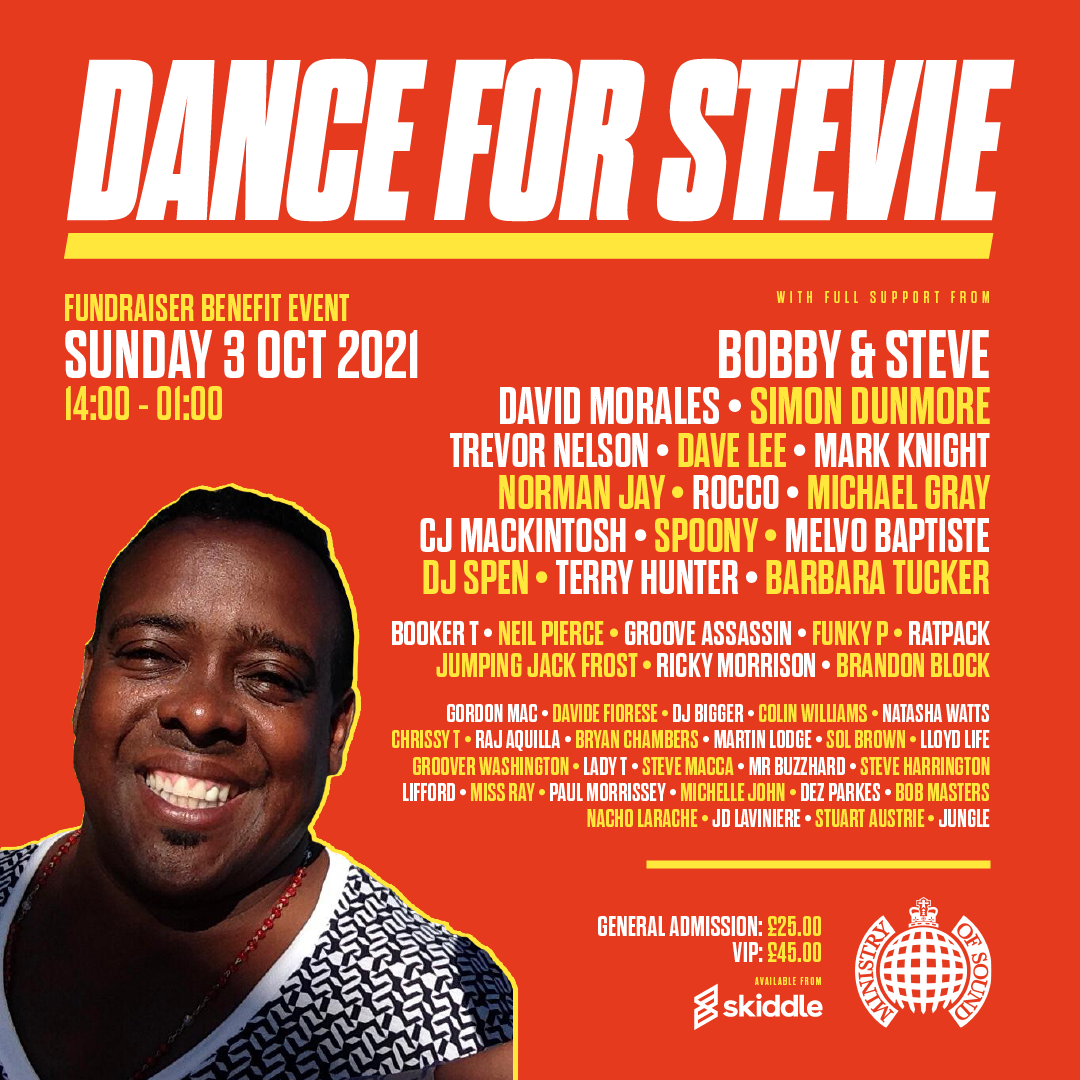
CLUBS IN ENGLAND CAN REOPEN FROM 19TH JULY, UK GOVERNMENT CONFIRMS
"It is absolutely vital that we proceed now with caution, and I cannot say this powerfully or emphatically enough — this pandemic is not over"

The UK Government has confirmed that nightclubs in England can reopen on 19th July, with most remaining COVID-19 restrictions to be removed as previously outlined.
Limits on the number of people who can meet inside will end, and face masks will no longer be required — although people are urged to continue wearing coverings on public transport and in other crowded settings. Businesses, including events, are also being advised to use vaccine passports.
The news comes as cases of COVID-19 continue to rise across the country, but crucially experts now say the successful vaccine rollout has severed the link between infection rates, hospitalisations, and deaths.
"If not now, then when," said Health Secretary Sajid Javid in a Westminster address on Monday (12th July), warning infections could reach 100,000 per day after reopening, but that health services should not be overwhelmed by this because severe illness will be reduced as a result of inoculations.
"As a matter of social responsibility, we are urging nightclubs and other venues with large crowds to make use of the NHS COVID pass, which shows proof of vaccination, a recent negative test, or natural immunity as a means of entry," Prime Minister Boris Johnson said in the latest Coronavirus Update, broadcast by the BBC earlier today (12th July).
"It is absolutely vital that we proceed now with caution, and I cannot say this powerfully or emphatically enough — this pandemic is not over. This disease, coronavirus, continues to carry risks for you and your family. We cannot simply revert instantly from Monday 19th of July to life as it was before COVID," he said.
Across Europe and the US, societies are slowly attempting to reopen. In Spain, clubs are operating again, with rules set on a regional basis — last week Catalonia announced it was closing indoor venues again after a brief spell during which parties were possible. Meanwhile, in Berlin, restrictions recently began easing, with Berghain using its outdoor dancefloor for the first time in months last weekend. Find out how nightlife workers feel about the return of events in our long read on the complex situation facing staff in the industry.
